#langblr russian
Text
PASSIVE PARTICIPLES IN RUSSIAN
Participles are verb forms that function like adjectives.
Present Passive Participles
These are formed from imperfective verbs and refer to 'which is being done', i.e: 'the cake, which is being baked'.
To form this participle:
Take the first-person plural form of an imperfective verb.
Add the proper adjectival ending (-ый/-ая/-ое/-ые)
As the participle refers to an action being done simultaneously as the action of the main verb, it must agree with the noun it describes of gender, number and case:
фильмы, любимые народом films loved by the people
However, this aspect is rare and used mostly in literature or academic texts.
Past Passive Participles
These are formed from (mostly) perfective verbs and express the past tense of the above, following the same rules, though they can be used both in short and long form.
To form the long form:
For verbs ending with -ать or -ять:
Take off the ending -ть
Replace with -нный to produce a participle ending in -анный or -янный (-ая /-ое/-ыe)
For verbs ending in -ить, -еть or -сти:
Find the first person singular (я) form and take off the -у or -ю
Add the ending -енный or, if stressed, -ённый, to a stem ending in a consonant
For most verbs ending in -ыть , -оть, or -уть:
Remove the soft sign -ь
Add the adjectival ending (-ый/-ая/-ое/-ые)
To form the short form:
For most verbs ending -ать or -ять:
Remove the -ть
Add -н for masculine, -на for feminine, -но for neuter and -ны for plural
For most verbs ending in -ить, -еть, or -сти:
Find the first person singular (я) form and remove the -у or -ю
Add -ен or -ён (depending on the stress in the 1st sing. form)
For most verbs ending in -ыть, -оть, or -уть:
Remove the soft sign (-ь)
Add the endings: -т, -та, -то, -ты.
#langblr russian#learning russian#russian#learning languages#long post#langblr#russian grammar#participles#russian participles
13 notes
·
View notes
Text
What do you mean i am not fluent in [LANGUAGE] immediately. that is so unfair
#PLEASEEEE PLEASEEEEEEE I WANNA BE FLUENT SOOO BADDDDD#I WANT TO BE ABLE TO!!!! READ!!!!!!! AND COMPREHEND!!!!!! PLEASEEE PLEASE PLEASEEEEEEEEEE#language learning#langblr#learning russian
1K notes
·
View notes
Text



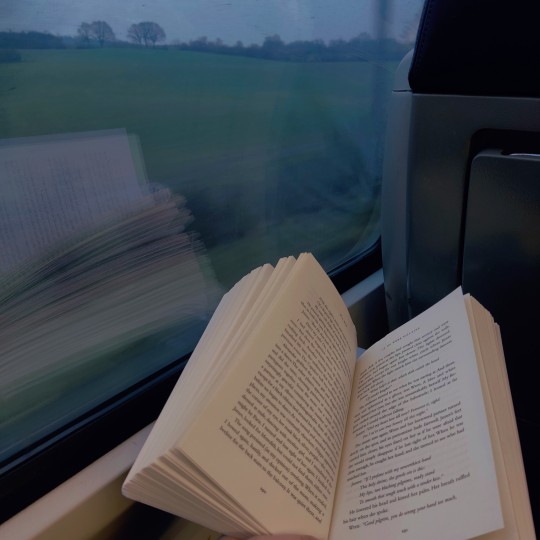


love that i have more time for language learning and reading now 💫
#i realised i really needed a break <3#this semester was one of the most stressful ones and i neglected french and russian#and swedish🤕#studyblr#langblr#aesthetic#study aesthetic#study inspiration#studying english literature#studying linguistics#studyspo#academia#dark academia#currently reading temeraire in french!
2K notes
·
View notes
Text
“Above all, don't lie to yourself. The man who lies to himself and listens to his own lie comes to a point that he cannot distinguish the truth within him, or around him, and so loses all respect for himself and for others. And having no respect he ceases to love.”
— Fyodor Dostoevsky, from “The Brothers Karamazov”, originally published c. 1879–1880.
#fyodor dostoevsky#the brothers karamazov#russian literature#quotes#lit#literature#litblr#studyblr#langblr#writeblr#booklr#books#bookworms#art#poetry#films#music#dark academia#the secret history#the song of achilles#if we were villains#aesthetic#moodboard#lgbtq
2K notes
·
View notes
Text
Počasi in Slovenian means "slow" but in Czech počasí means "weather" and in Slovenian "weather" is vreme but in Russian "время" (vremya) means "time" and this is exactly why I shouldn't have studied two Slavic languages at the same time but here I am
591 notes
·
View notes
Text
How to build a language self-study plan

So I’ve noticed, upon combing through pages and pages of youtube videos and google blogs, that rarely does anyone ever actually tell you what you should be studying. There’s a reason for this ! Everyone is different and at a different level, different motivation. It’s impossible to create a study plan that is perfect for everyone... which is why it can also be agonizing to make one for yourself.
“How am I supposed to know what’s important to study, if I don’t speak the language?”
Well that’s a good question! You need to gauge how far you’ve come so far and how far you’d like to get. It’s easiest when you are starting from zero because you can learn the alphabet, numbers, basic phrases, and basic grammar. Easy peasy. You can go cover to cover in a text book.
Here’s a check-list to create the perfect study plan special to you.
1. What do I know already? What do I need to work on?
- is it worth starting a textbook, if you feel like you already know half of it? It might be worth completing the given exercises and if you achieve an 80% or higher (or you could give that lesson to someone else) then you can move on from that specific point.
- create a list of the points that you still need to master
2. What do I need to include in a study session?
- naturally there needs to be a focus or a few different focuses of a study session, whether it’s a specific activity or a grammar point. I recommend creating a list of things you want to get done (a.) every day, (b) every week, and (c) every month. These goals must be quantifiable. For example, every week I read two news articles in German. As a reflection, I then write a summary of the event of the article as well as a personal opinion. That’s an easy box to check.
- you need a reflection. It’s important to really take time to reflect on how you feel about the time spent and the materials used. What could you do better next time? What went well?
3. When is the best time to study?
- are you more active/focused in the morning or in the night? The key is consistency. If you have a routine, you’re far more likely to adhere to it. I know that my own schedule is highly changeable and that can make it very difficult, but I’ve found if I wake up in the same period of time every morning, brush my teeth, make my bed, and then sit down to my work, I feel far more productive.
- how much should I study at a time? The recommended period is 25 minutes from the Pomodoro Method with a five minute break. You can research time-management techniques but ultimately it comes down to you.
4. How do I take notes ?
- IT”S ALL ABOUT YOU! What I do is take messy notes in classes or on my own and then I transcribe the finished page to my Notion page. It gives me a chance to make the notes neater and also to review a little bit. I will say though statistically, you will remember better if you write by hand.
- I like to have a column on each page for words I didn’t know
#languages#language learning#German language#french language#langblr#langblog#russian langblr#german langblr#french langblr#learn languages
1K notes
·
View notes
Text
I feel like I’m at a point in language learning where no matter what I do I’m not improving
It’s like I’m not fluent enough to read books or watch shows in the language but I’m fluent enough where all of the beginner learning materials are too easy
156 notes
·
View notes
Note
Hi! I want to learn French and Russian. Could you share your favourite resources for beginners? Could you also include books and movies/TV shows recommendations for both languages in your post? Thank you.
That's really cool that you want to learn those languages!!!
I have a bunch of Russian resources that I used because I started out as solely self-learning. So a large part in my absolute beginner phase I spent listening to podcasts, specifically, these: understanding spoken Russian which is great for just getting a feel for the language while also learning a bit of grammar and this one for getting grammar and vocab explained in a very down to earth kind of way without any types of big words you need to know.
Besides these I essentially learned all the Russian grammar I know on Youtube. Especially from this channel. Daria is very cool and also has several podcasts under the same name.
This one has helped me with specific questions about little grammar things, so might also be useful.
Nastya has this year begun doing a Learn Russian in a Year thing where she uploads every day a thirty minute lesson. It's a bit slow for me personally having already learned a lot and just generally me being impatient but it can definitely help with vocab.
He also has good videos and also some free stuff on his website iirc.
For TV shows I unfortunately can't recommend a lot for beginners. What you can do though is watch episodes like Peppa the Pig on Youtube in English and in Russian/French to compare and learn or only in your TL as they're obviously at a low level. What I do highly recommend as a show though is слуга народу for Russian and Lupin for French.
Also, if you're into audiobooks, try typing children audiobooks into Youtube or try listening to the Russian/French version of Harry Potter (that's what I'm doing rn actually).
If you're looking for a book and willing to spend some money I recommend this book with Russian short fiction for beginners. I just finished it and I thought it was very fun with vocab lists and questions for the stories at the end. The same author has also books for higher levels.
Unfortunately, as I learned almost all of French in classes I only have one channel I actually use to recommend, which is this one. You'll find some of my posts where I used this channel as my source.
I hope this helps! I might update in future when I find more. Good luck with your language learning journey!!
#everyone: feel free to add!!#especially for french as i know embarrissingly little#but we won't talk about that#learning french#langblr#french#langblog#french langblr#french langblog#french resources#russian#russian resources#learning russian#russian langblr#russian langblog#ask response#xeniaochisor
276 notes
·
View notes
Text
Fun fact: this blog was originally for Chinese and Russian. I don’t study Russian anymore (and have mostly forgotten it), but I’ll always remember a phrase my teacher taught us: понедельник – день тяжелый (ponedel'nik – den' tyazhelyy).
It means “Monday is a hard day,” and I think about it almost every Monday 😖
66 notes
·
View notes
Text
Музей Фаберже
My Russian class is doing presentations this week, about tourist attractions! I chose to do mine about the Faberge Museum in St Petersburg, so here are some facts! (in Russian, of course)
Моя русская занята, в этом неделю, занимаемся поднесениями о достопримечательностях! Я выбрал Музей Фаберже в Санкт-Петербурге, так здесь горстка фактов (по-русски, конечно).
История Фаберже
Дом Фаберже был бизнес украшении основан Густавом Фаберже, в 1842 г.
Фаберже потом отдал фирме своим сыновьям, которые отдали своим, но в 1918 г. большевики взяли его.
Они самые известные красивыми драгоценными яйцами сделанными для российской царской семьи.

↑ Логотип, 1908 г.
Вот вы смотрите на яйцо “бутон розы” которое сейчас живут в музее Фаберже в Санкт-Петербурге. ↓

Музей стоит на реке Фонтанке, в Шуваловском дворце. Если вы хотите увидеть часть коллекции, есть онлайн-тур.
Музей открыт c десять часов утра до вез четверти девять вечера.
Обычный билет стоит 500 рублей, а один для студентов половина этого.
Спасибо!
3 notes
·
View notes
Text
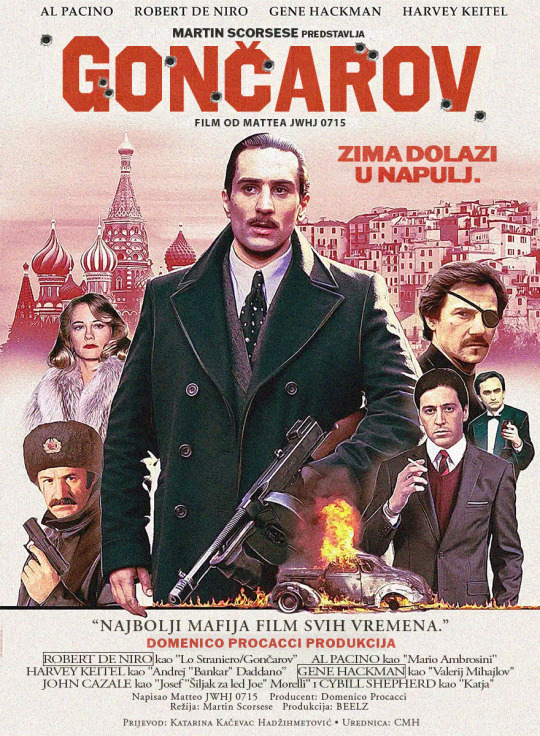

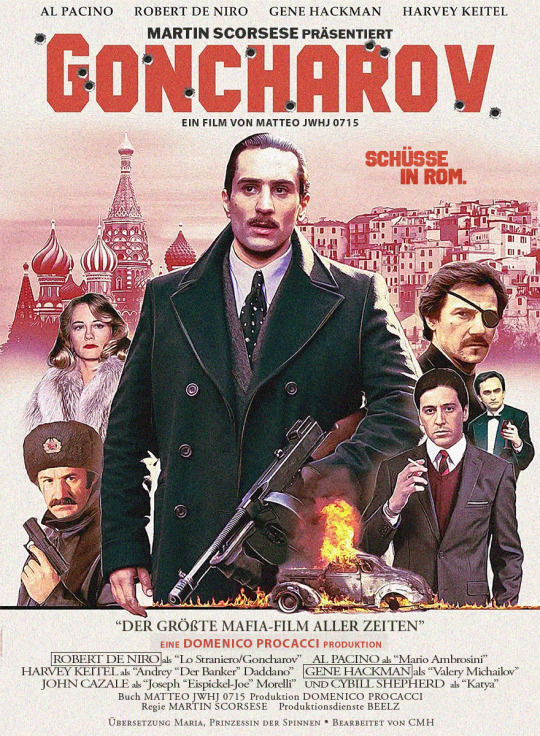
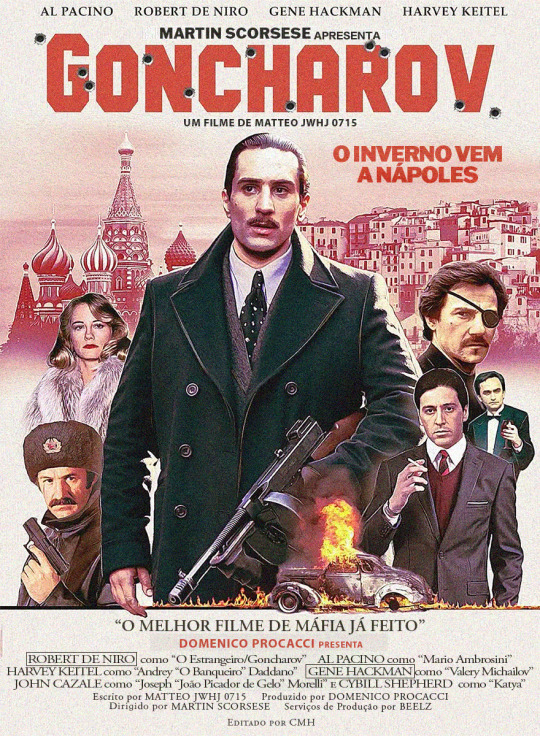
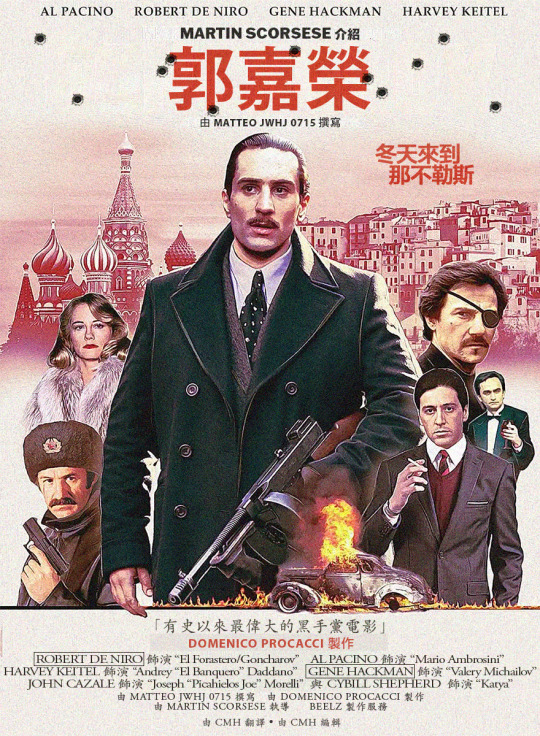
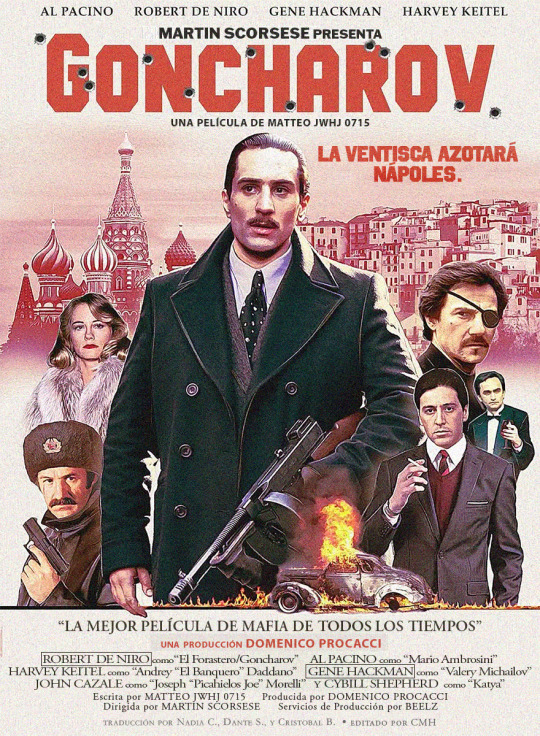
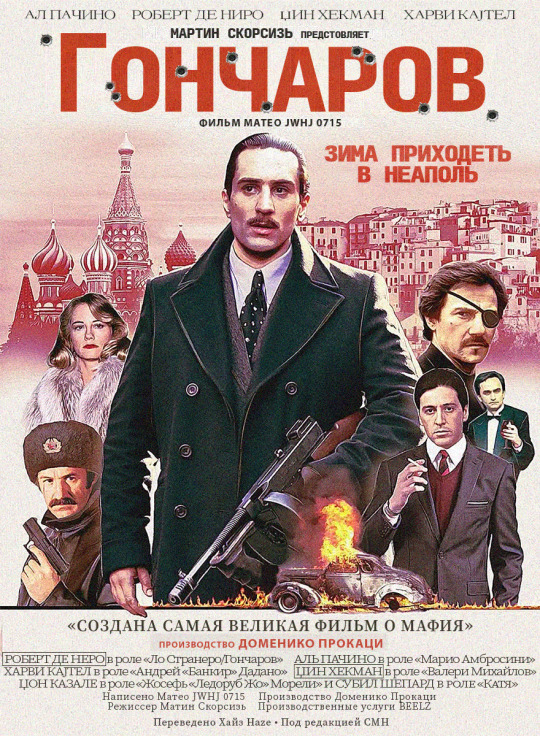
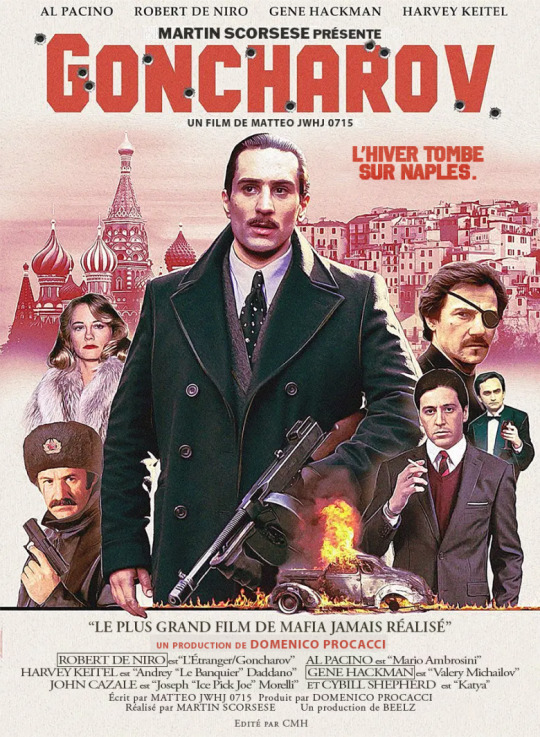
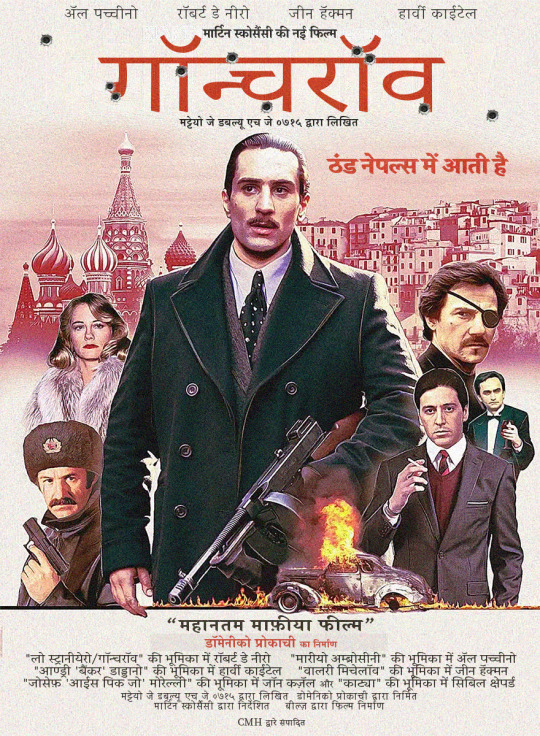
Goncharov (1973) International Posters
Translation Credits
Serbo-Croatian (Croatian/Bosnian) - Katarina Kačevac Hadžihmetović
Serbo-Croatian (Serbian/Montenegrin) - Katarina Kačevac Hadžihmetović
Chinese (Traditional) - CMH (@honest-studies)
Spanish - Nadia C., Dante S., Cristobal B.
French - Anonymous
Hindi - Anonymous
Russian - Haze
German - Prinzessin der Spinnen
Portuguese (Brazilian) - Anonymous
Original poster design credits to @beelzeebub, Photoshop editing work by me.
#unreality#translation#goncharov#gonchposting#langblr#foreign language#poster#international#goncharov 1973#katya#shoutout to the goncharov 1973 lore discord server#beelzeebub#mafia#cult classic#serbo-croatian#chinese#spanish#french#hindi#russian#german#edit: currently working w translators to fix russian translation :)
663 notes
·
View notes
Text


15.1.23🕯️ late night russian study session while it's raining outside. excuse my horrific cyrillic handwriting.
#i lit candles to summon my inner russian demon#it was fruitless😔✌🏼#studyblr#langblr#aesthetic#study aesthetic#study inspiration#studying english literature#studying linguistics#studyspo#academia
766 notes
·
View notes
Text
“Man is sometimes extraordinarily, passionately, in love with suffering.”
— Fyodor Dostoyevsky, from “Notes from the Underground”, published c. april 1864.
#notes from the underground#fyodor dostoevsky#russian literature#quotes#writing#lit#literature#litblr#studyblr#langblr#writeblr#booklr#books#bookworms#poetry#art#cinema#music#classics#dark academia#the secret history#the song of achilles#if we were villains#lgbtq#moodboard#aesthetic#photography#nature#motivation
663 notes
·
View notes
Text
I just found an archive of Soviet children's books here
222 notes
·
View notes
Text
hello everyone!
just joined studyblr and langblr to meet some lang lovers and generally get my ass to study, never used this app before so be patient with me i beg i have no idea what i am doing lol
speak: 🇵🇱🇬🇧
intermediate: 🇯🇵🇨🇳
basic: 🇫🇷🇧🇬
want to learn: 🇷🇺🇰🇷
let’s be study buddies !!
#langblr#studyblr#how it even works help#japanese studyblr#chinese studyblr#russian studyblr#linguistics#study blog#i need language friends or i will go insane my motivation is ZERO
49 notes
·
View notes
Text
"I wish I could write in English like a native speaker" bro native speakers don't know about the difference between they're, there and their
#and french natives never get the endings right#and italians make mistakes with congiuntivo#and russians fail exams because of speaking incorrectly#langblr#languages#polyglot#language learning
207 notes
·
View notes